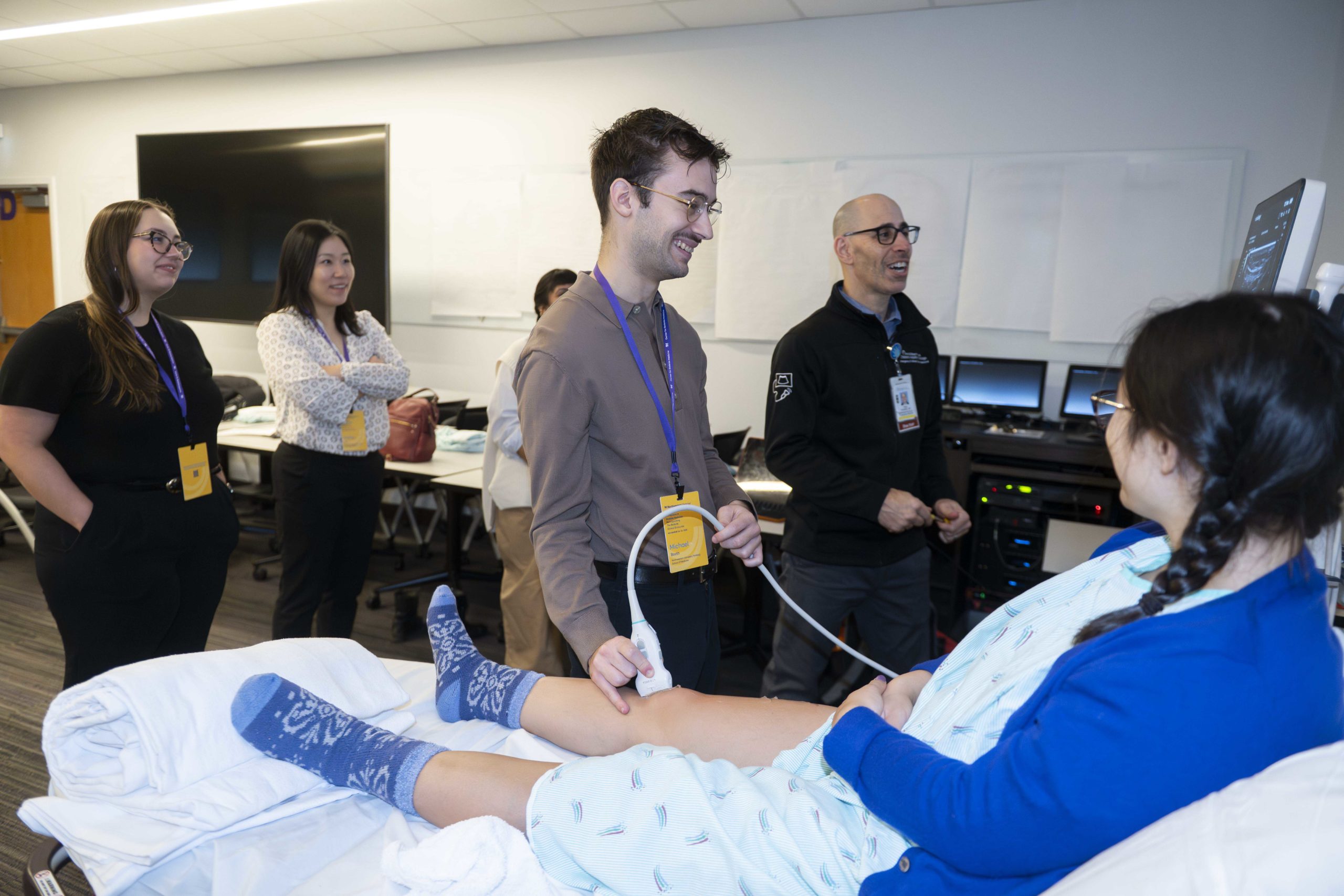-

New Chief of Division of Hematology and Oncology Named
Hidayatullah G. Munshi, MD, ‘02, ‘04 GME, has been named chief of Feinberg’s Division of Hematology and Oncology in the Department of Medicine.
-

Medical School Tops Research Funding in 2024
Feinberg principal investigators secured $742.2 million dollars in research funding and awards during the 2023-24 fiscal year, a five percent increase over the previous year, and the largest amount in the school’s history.
-

B-Cells Hold Promise for Treating Glioblastoma
Harnessing the body’s own B-cells to fight tumors may be a promising treatment for glioblastoma, according to a Northwestern Medicine study recently published in the Journal of Clinical Investigation.
-

Diagnostic Guidelines Don’t Catch All Rare Cancers, Study Finds
Current diagnostic guidelines for a rare type of lymphoma miss a subset of patients with the disease, according to a Northwestern Medicine study published in the journal Blood.
-

Vital Language Sites in the Brain Act Like Connectors in a Social Network
A new Northwestern Medicine study may better inform doctors’ decisions about which brain areas to preserve during surgery, thereby improving patients’ language function after brain surgery.
-

Studying the Mental Health Impact of Weight Loss Drugs
A popular weight loss drug is psychiatrically safe for people without a history of significant mental health disorders, according to a new clinical trial published in JAMA Internal Medicine.
-

Combination Treatment Extends Survival in Advanced Bladder Cancer
Immunotherapy administered before and after chemotherapy along with surgical removal of the bladder improved survival compared to chemotherapy alone in patients with muscle-invasive bladder cancer, according to a recent study published in the New England Journal of Medicine.
-

Research Day 2024 Celebrates Scientific Discovery and Advances
Feinberg students, staff, trainees and faculty gathered to celebrate scientific discovery and presented research posters and abstracts at Feinberg’s 18th annual Lewis Landsberg Research Day on Thursday, Sept. 12.
-

Social Determinants of Health Associated with Diabetic Eye-Care Quality
Patients who live in rural communities, Hispanic patients and Black patients with pre-existing diabetic retinopathy are less likely to receive annual diabetic eye exams than white patients, according to a recent Northwestern Medicine study.
-

U.S. South Asians Need Targeted Programs to Improve Heart Health
Northwestern Medicine scientists have conducted the largest lifestyle-intervention trial for U.S. South Asians, helping build a larger body of research to better represent the diverse and vastly underrepresented group.
-

Understanding the Molecular Players in Eye Inflammation
Northwestern Medicine investigators have shed new light on how white blood cells in the retina function during inflammation and possibly during retinal vascular diseases with inflammatory components like diabetic retinopathy, according to a study recently published in the Journal of Clinical Investigation.
-

First-of-its-Kind Program Makes Organ Transplants More Accessible to Disadvantaged Black Americans
A recent publication has outlined the novel and practical approach to improving transplant equity pioneered by Northwestern’s African American Transplant Access Program.
-

Molecular Profiling May Improve Meningioma Decisionmaking
Investigators have demonstrated how molecular profiling of tumors can be used to help predict treatment response and survival in patients with meningiomas, the most common type of primary brain tumor, according to a recent study published in Nature Medicine.
-

Spike Mutations Help SARS-CoV-2 Infect the Brain
Northwestern Medicine scientists have discovered a mutation in SARS-CoV-2, the virus that causes COVID-19, that plays a key role in its ability to infect the central nervous system, according to recent findings.
-

Combination Treatment Improves Progression-Free Survival in Advanced Prostate Cancer with Genetic Mutations
A combination therapy improved progression-free survival in patients with metastatic castration-resistant prostate cancer with genetic mutations compared to either therapy alone or sequentially, according to results from a Northwestern Medicine-led clinical trial.
-

T-cell Responses Influence Patient Outcomes in SARS-CoV-2 Pneumonia
Northwestern Medicine investigators have identified distinct T-cell responses associated with patient outcomes in unvaccinated individuals with severe SARS-CoV-2 pneumonia, according to findings published in Nature Immunology.
-

One Minute to Save Lives: Teaming Up With Pediatricians to Secure Firearms
Scientists have found that pediatricians are more likely to have conversations with parents about gun safety and secure storage if they receive a “nudge” from an electronic health record.
-

Non-Neuron Brain Cells Produce a Third of Amyloid Plaque in Alzheimer’s Disease
An international team of investigators have discovered that oligodendrocytes contribute approximately one-third of plaque formation alongside neurons in mouse models of Alzheimer’s disease, according to a recent study published in Nature Neuroscience.
-

Northwestern Receives $55 Million to Advance Health Research
The Northwestern University Clinical and Translational Sciences (NUCATS) Institute has received $55 million in National Institutes of Health (NIH) funding to accelerate development, evaluation and implementation of improved healthcare interventions.
-

Oncoprotein Activity Increases Prostate Cancer Progression
Investigators have discovered that aberrant activation of a specific oncoprotein drives key tumor promoting changes in the prostate tissue microenvironment during cancer progression, according to a Northwestern Medicine study published in Nature Communications.






